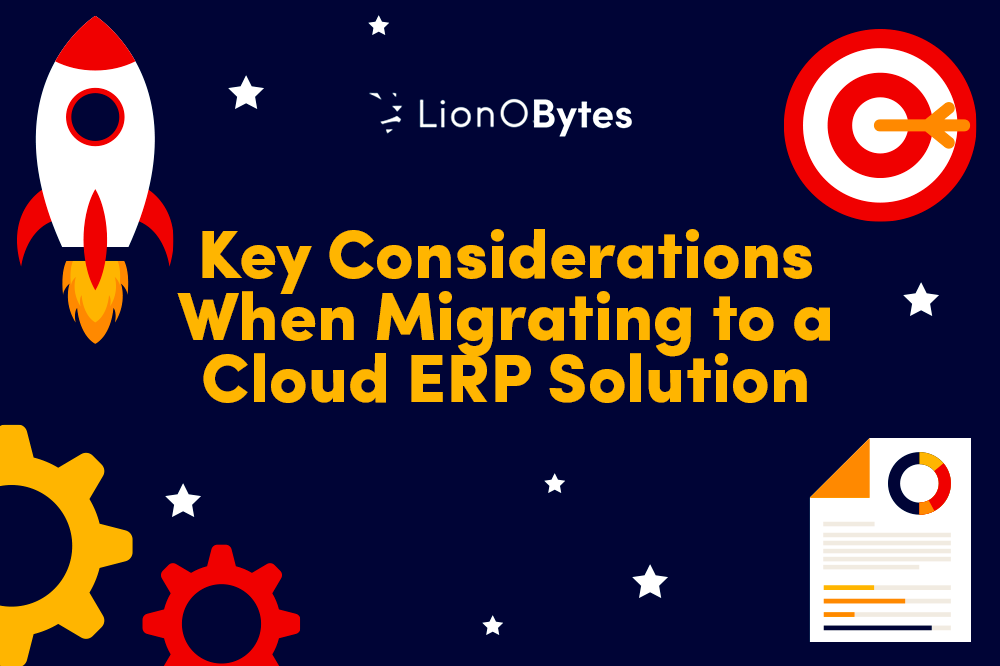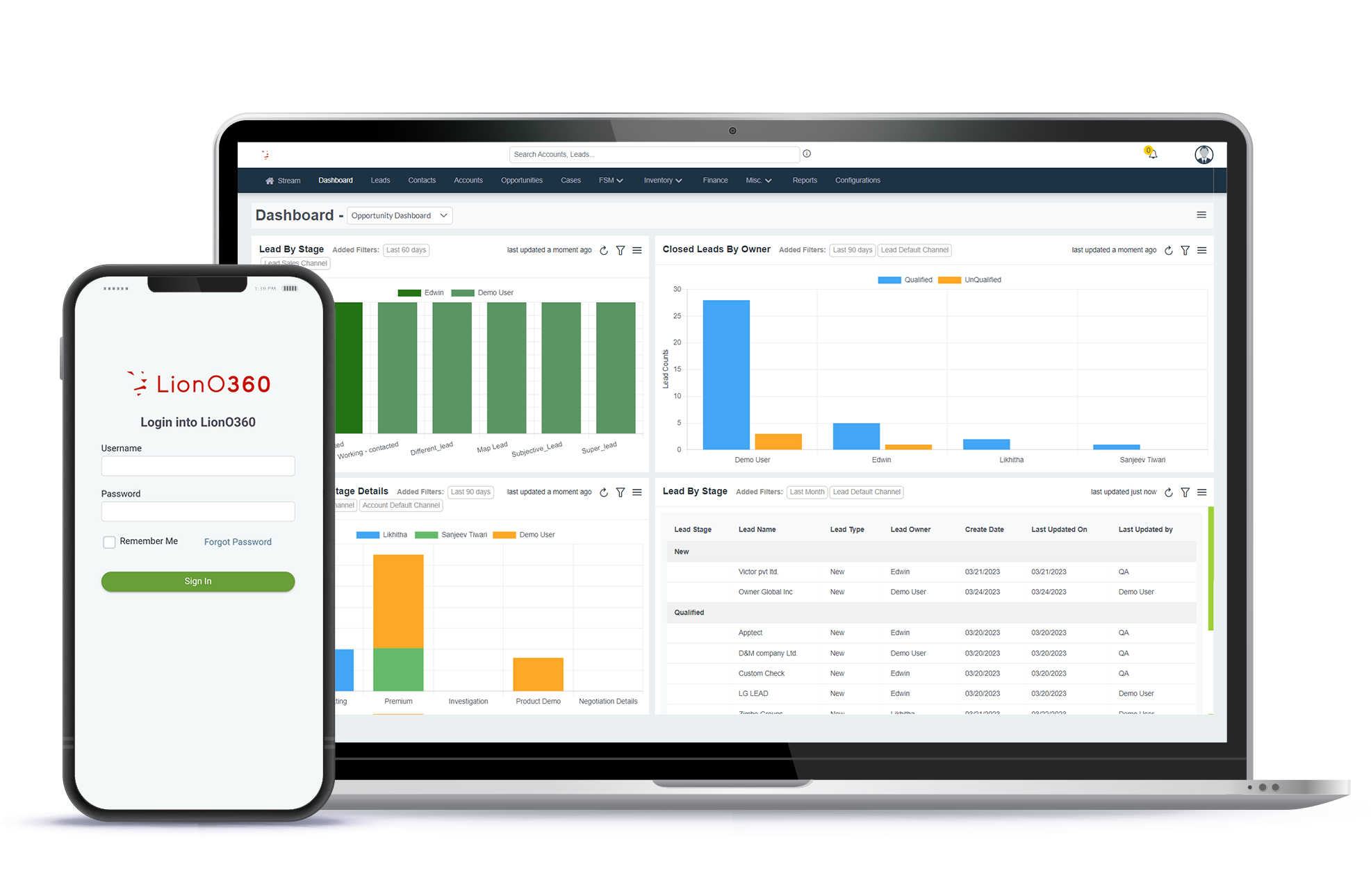
Migrating to the cloud ERP can be challenging if strategic planning is not adopted. So, this blog is dedicated to the key considerations when migrating to the cloud ERP.
During Cloud ERP migration, your data is moved from disparate systems to the centralized database, which involves data from the customers, supply chain, inventory, warehouses, etc.
Lacking careful planning can impact ongoing processes due to data correlation. Thus, adopting key migration strategies can help ensure successful cloud ERP implementation.
Whether planning to migrate data for the very first time or from the existing ERP solution, adapting with careful consideration is inevitable. Before we reveal key considerations for cloud ERP software migration, let’s get a core overview first:
What is Cloud ERP Data Migration?
Cloud ERP data migration is transferring data from one source to another. You may require data migration either from a disparate system to the cloud or from on-premises ERP to the cloud ERP. It also involves data transferring from different systems, file formats, and data storage types to one centralized system.
However, no data is directly transferred from one system to another. It requires careful data cleaning and preparation to avoid duplicate data and potential inaccuracies.
With this understanding, let’s become aware of potential data migration challenges.
Cloud ERP Data Migration Challenges
When it comes to cloud ERP data migration, several challenges come ahead that you need to overcome. Here, choosing the right cloud ERP implementation partner like LionOBytes can help you ensure seamless and secure cloud ERP data migration.
Now, let’s have a glimpse of potential Cloud ERP migration challenges:
Data Redundancy and Data Duplication
Often the same information is stored by multiple departments in different file formats or structures. For instance, people from different processes or departments may store customer data in different formats.
Here, importing data from each process or system to the cloud ERP system can result in duplicate records and inaccurate customer information.
Data Migration Cost
The cost of migrating data to the cloud can add an additional layer to your budget. This cost involves cleaning and restructuring the data so that only the clean and structured data can be moved to the cloud ERP system. However, with LionOBytes, you can get affordable data migration to the cloud ERP.
Regulatory Issues
Adhering to a number of industry-specific regulations affects the organization in terms of storing and leveraging the data. Thus, it is vital to ensure that you comply with all those regulations.
This will help you ensure seamless data transfer from your existing database or ERP to the new cloud ERP system.
Steps for a Successful ERP Migration
Identify Key Stakeholders
Identifying the key stakeholders is a very crucial step to consider in your business. Before you select a vendor to migrate your data to the cloud ERP solution, it is important to define the key stakeholders in your organization.
These key stakeholders will be responsible for managing the project, authorizing budgetary changes & control, verifying scope changes, etc. Eventually, this leadership support can help ensure project success.
Assess Your Business Requirements
Migrating your data to the new ERP system is a major decision in your organization. You need to carefully choose the cloud ERP vendor. Now, evaluate and analyze your business needs including required functionalities, data you need to migrate, and your business objective behind migrating to the cloud ERP.
You need to know whether the cloud ERP will help you with your long-term growth and can be scaled to support your growing business needs.
Assess your functional needs and come up with a list of features you need in your ERP system. Core features modules that you need to consider include inventory management, warehouse management, finance management, logistics management, etc.
With LionOBytes, you get an AI-powered ERP to automate your tasks and to get instant insights for informed decision-making.
Ensure Change Management
Change management is crucial for successful cloud ERP implementation. Post data migration to the cloud ERP, seamless user adoption is required. Choosing the right vendor can help you ensure effective user adoption with their end-user training and ongoing support.
However, before selecting the vendor, you also need to contribute to ensure successful cloud ERP implementation such as level of change management, potential areas affected by the change, etc.
Evaluate and Map the Data
Analyze and map the data that you want to get migrated. Carefully examine each data source, file, and storage type. Also, consider potential redundancies or data inconsistencies.
This will help your cloud ERP solution provider to ensure effective data cleaning and data readiness for the cloud database.
Decide What to Migrate
There is a possibility that your current system comprises data that is not useful at all or may contain outdated information or transactions. Thus, you need to decide which data you need to send for migration so as merely the right and usable data will be migrated to the new system.
LionO360 Cloud ERP: Effortless Migration & Automation
Migrating to a Cloud-ERP system has never been simpler. LionO360 guarantees a seamless transition from legacy systems without any disturbance of your operations. Our proven process ensures secure data migration, minimal downtime, and easy integration so your business can keep running.
We also take migration further. From the first day, LionO360 ERP automates workflows for you. You can easily get rid of more manual, slow processes and inefficiencies. Thanks to AI-driven automation we can set up everything from inventory tracking to financial reports while minimizing human error, and saving time and align you towards better decision making.
With more than 5000 migrations and customizable migration roadmaps, we take the headache out of ERP onboarding. You can continue focusing on growth, while LionO360 takes care of you; migrate once; automate forever.
Are you ready to start your transformation? We guarantee that we will make your move to the cloud simple. Schedule your free ERP demo now or contact us at +1 609-281-5272.
Frequently Asked Questions
What is cloud ERP?
Cloud ERP is a business management solution wherein technology and infrastructure are managed by the cloud ERP vendor. Here, all the software updates and upgrades are controlled by the Vendor only.
They often come up with frequent releases to address market changes and industrial needs. Thus, you need not worry about system maintenance or feature upgrades as everything is taken care of by the vendor side.
To know more, connect to LionOBytes as we offer AI-powered ERP to manage your end-to-end processes. Our ERP comprises features to manage your customers, inventory, warehouses, finance, supply chain, and more.
What are the common risks in implementing cloud ERP?
Whether you are migrating your data from disparate systems to the cloud or from the on-premises ERP to the Cloud ERP, you need to have patience, determine your budget, and choose a vendor who can ensure secure data migration to the cloud system.
With LionOBytes, you can ensure secure and reliable data migration to the LionO360 ERP system. Our data migration experts leverage high-end security protocols and data transfer algorithms to ensure that merely the cleaned and relevant data is migrated to the cloud ERP solution helping to align with your business goals.
How can I integrate my existing system with a new cloud ERP?
You need to choose the ERP platform that comes with integration capabilities. With LionO360 ERP, you can ensure seamless integration with almost all the popular tools and applications.
As we offer AI-based ERP, you will enjoy most of the built-in features to automate and streamline your processes. From AI bots and sales forecasting to generative AI-based e-mail writing capability, our system helps you to effectively carry out your day-to-day business goals.
To know more about our AI-based ERP, we are just one step away.












